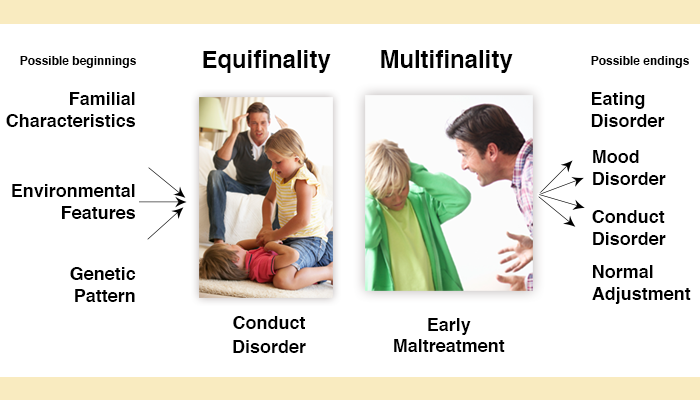Main Content
Lesson 1: Introduction to Normal and Abnormal Behavior in Children and Adolescents
Defining and Identifying Abnormal Behavior
Michael is a 5-year-old boy who was recently kicked out of his preschool program. Along with his failure to engage in the classroom (e.g., sat on the floor and stared, refused to talk), he hit any child who came near him or touched him. If his teachers corrected him or insisted that he participate, Michael cried, yelled, and banged his arms and head on the floor. Similar behaviors were occurring at home. Michael rarely talked, showed little emotion other than anger, rocked back and forth when sitting, and slept terribly.
Based on this definition and criteria, we could conclude that Michael’s behavior meets the general criteria for a psychological disorder. However, because he is a child, there are some additional factors that we should consider.
Competence
The ability to navigate social, emotional, cognitive, and behavioral tasks within one’s environment. A part of evaluating competence involves understanding cultural factors (e.g., beliefs regarding a child’s role) that may influence evaluations of competence.
Developmental Tasks
Knowledge of developmental tasks, such as conduct and academic skills, is important to making judgments regarding impairments. For example, expectations for how long a 2-year-old can sit still and focus on a task are much different than those for a 6-year-old child.
Developmental Pathways
The timing and sequence of behaviors and events are interactive over time and may lead to similar or dissimilar outcomes depending on a variety of factors (e.g., individual personality characteristics). Two examples of developmental pathways can help us understand the development of psychological problems.
Multifinality and Equifinality
Multifinality: Various outcomes may result from similar beginnings. In this scenario, an early history of child maltreatment (i.e., a similar early event) impacts different individuals in different ways. Some may go on to develop a psychological problem while others may not experience any impact on later adjustment.
Equifinality: Similar outcomes result from different early experiences. In this scenario, a range of early experiences may result in the development of a common psychological problem.

